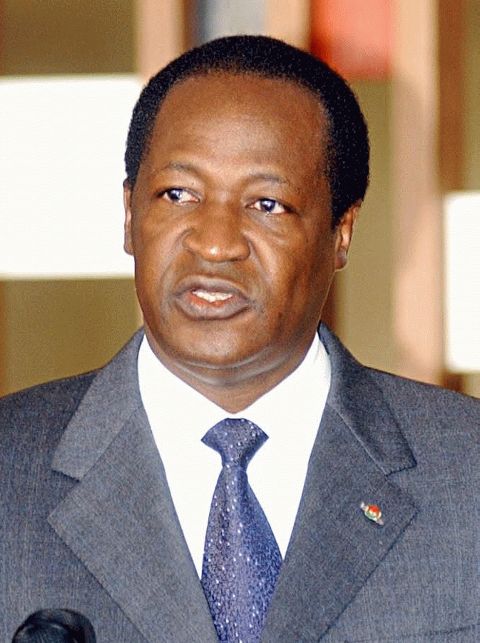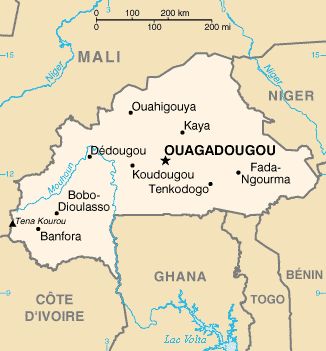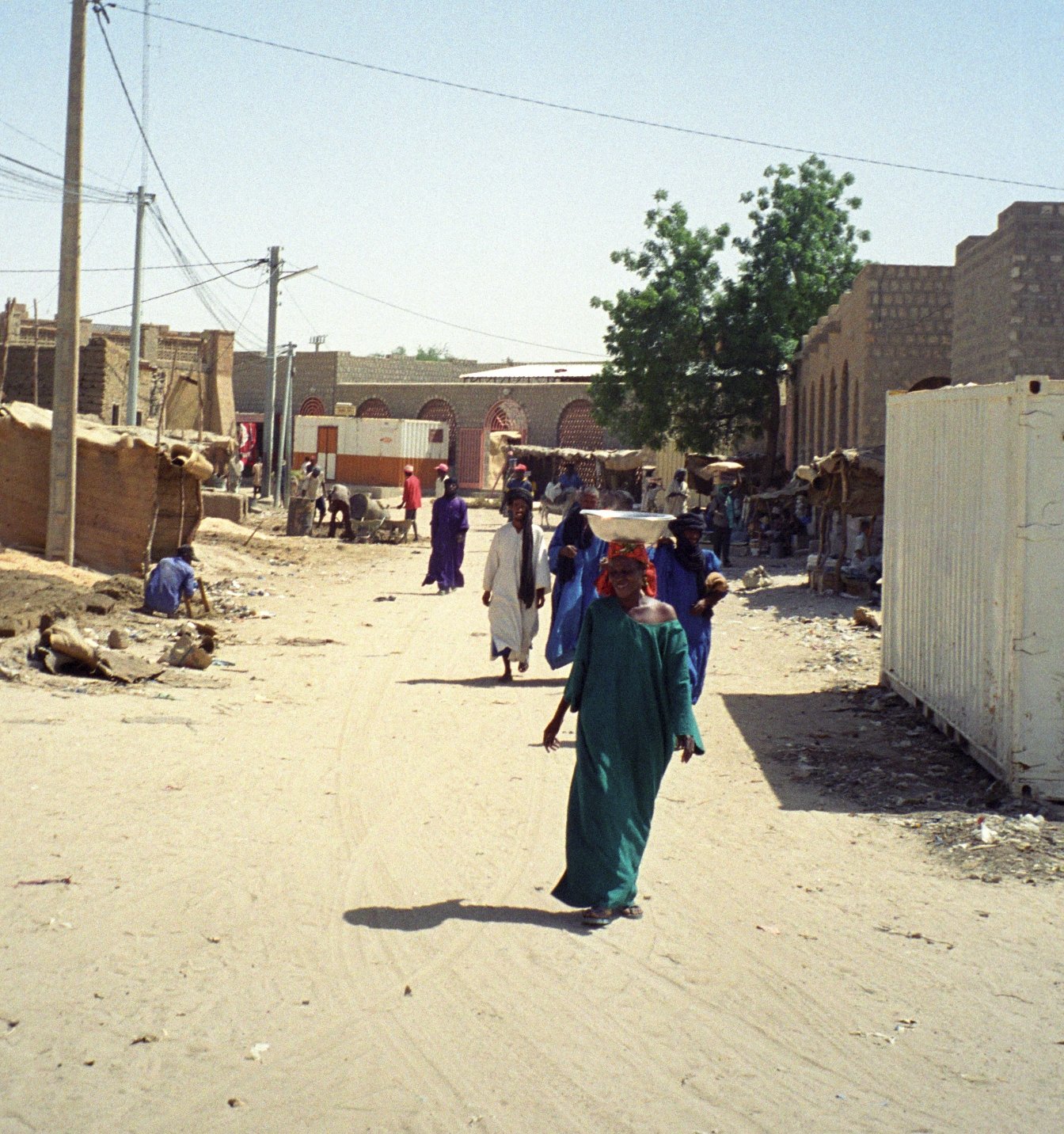|
History Of Burkina Faso
The history of Burkina Faso includes the history of various kingdoms within the country, such as the Mossi kingdoms, as well as the later French colonisation of the territory and its independence as the Republic of Upper Volta in 1960. Ancient and medieval history Iron production occurred in regions near Douroula at least as far back as the 8th century BC and was widely practiced across the region by the 5th century BC. Furnaces, mines, and surrounding dwellings dating from this time period are found across the country. Recent archeological discoveries at Bura in southwest Niger and in adjacent southwest Burkina Faso have documented the existence of the iron-age Bura culture from the 3rd century to the 13th century. The Bura-Asinda system of settlements apparently covered the lower Niger River valley, including the Boura region of Burkina Faso. Further research is needed to understand the role this early civilization played in the ancient and medieval history of West Afric ... [...More Info...] [...Related Items...] OR: [Wikipedia] [Google] [Baidu] |
Burkina Faso
Burkina Faso (, ; , ff, 𞤄𞤵𞤪𞤳𞤭𞤲𞤢 𞤊𞤢𞤧𞤮, italic=no) is a landlocked country in West Africa with an area of , bordered by Mali to the northwest, Niger to the northeast, Benin to the southeast, Togo and Ghana to the south, and the Ivory Coast to the southwest. It has a population of 20,321,378. Previously called Republic of Upper Volta (1958–1984), it was renamed Burkina Faso by President Thomas Sankara. Its citizens are known as ''Burkinabè'' ( ), and its capital and largest city is Ouagadougou. The largest ethnic group in Burkina Faso is the Mossi people, who settled the area in the 11th and 13th centuries. They established powerful kingdoms such as the Ouagadougou, Tenkodogo, and Yatenga. In 1896, it was colonized by the French as part of French West Africa; in 1958, Upper Volta became a self-governing colony within the French Community. In 1960, it gained full independence with Maurice Yaméogo as president. Throughout the decades post in ... [...More Info...] [...Related Items...] OR: [Wikipedia] [Google] [Baidu] |
World Heritage Site
A World Heritage Site is a landmark or area with legal protection by an international convention administered by the United Nations Educational, Scientific and Cultural Organization (UNESCO). World Heritage Sites are designated by UNESCO for having cultural, historical, scientific or other form of significance. The sites are judged to contain " cultural and natural heritage around the world considered to be of outstanding value to humanity". To be selected, a World Heritage Site must be a somehow unique landmark which is geographically and historically identifiable and has special cultural or physical significance. For example, World Heritage Sites might be ancient ruins or historical structures, buildings, cities, deserts, forests, islands, lakes, monuments, mountains, or wilderness areas. A World Heritage Site may signify a remarkable accomplishment of humanity, and serve as evidence of our intellectual history on the planet, or it might be a place of great natural beauty. A ... [...More Info...] [...Related Items...] OR: [Wikipedia] [Google] [Baidu] |
France
France (), officially the French Republic ( ), is a country primarily located in Western Europe. It also comprises of Overseas France, overseas regions and territories in the Americas and the Atlantic Ocean, Atlantic, Pacific Ocean, Pacific and Indian Oceans. Its Metropolitan France, metropolitan area extends from the Rhine to the Atlantic Ocean and from the Mediterranean Sea to the English Channel and the North Sea; overseas territories include French Guiana in South America, Saint Pierre and Miquelon in the North Atlantic, the French West Indies, and many islands in Oceania and the Indian Ocean. Due to its several coastal territories, France has the largest exclusive economic zone in the world. France borders Belgium, Luxembourg, Germany, Switzerland, Monaco, Italy, Andorra, and Spain in continental Europe, as well as the Kingdom of the Netherlands, Netherlands, Suriname, and Brazil in the Americas via its overseas territories in French Guiana and Saint Martin (island), ... [...More Info...] [...Related Items...] OR: [Wikipedia] [Google] [Baidu] |
Neo-colonialism
Neocolonialism is the continuation or reimposition of imperialist rule by a state (usually, a former colonial power) over another nominally independent state (usually, a former colony). Neocolonialism takes the form of economic imperialism, globalization, cultural imperialism and conditional aid to influence or control a developing country instead of the previous colonial methods of direct military control or indirect political control (hegemony). Neocolonialism differs from standard globalisation and development aid in that it typically results in a relationship of dependence, subservience, or financial obligation towards the neocolonialist nation. This may result in an undue degree of political control or spiraling debt obligations, functionally imitating the relationship of traditional colonialism. Neocolonialism frequently affects all levels of society, creating neo-colonial systems that disadvantage local communities, such as neo-colonial science. Coined by the French p ... [...More Info...] [...Related Items...] OR: [Wikipedia] [Google] [Baidu] |
Voltaic Democratic Union
The African Democratic Rally (''Rassemblement Démocratique Africain'') is a political party in Burkina Faso. It was originally known as the Voltaic Democratic Union-African Democratic Rally (UDV-RDA) and was formed in 1957 as the Voltaic section of the African Democratic Rally (RDA). Soon after Independence in 1960, UDV-RDA became the only legal political party in Upper Volta and a civilian dictatorship was set up. In 1966, there was a military coup to overthrow the government, and the UDV-RDA didn't exist in the new government. Under the rule of Sangoulé Lamizana UDV-RDA was reconstructed and developed good relations with the government. The relation to Lamizana did however cause internal dissent. The pro-Lamizana faction was led by Prime Minister Joseph Conombo and the anti-Lamizana faction was led by Joseph Ouédrago. At the time of the presidential and legislative elections 1978 UDV-RDA had one list for legislative but the different factions supported different presiden ... [...More Info...] [...Related Items...] OR: [Wikipedia] [Google] [Baidu] |
Maurice Yaméogo
Maurice Yaméogo (31 December 1921 – 15 September 1993) was the first President of the Republic of Upper Volta, now called Burkina Faso, from 1959 until 1966. "Monsieur Maurice" embodied the Voltaic state at the moment of independence. However, his political ascension did not occur without difficulties. As a member of the colonial administration from 1946, Maurice Yaméogo found a place for himself in the busy political landscape of Upper Volta thanks to his skill as a speaker. In May 1957, during the formation of the first Upper Voltaic government instituted under the Loi Cadre Defferre, he joined the coalition government formed by Ouezzin Coulibaly, as minister for agriculture and a member of the Voltaic Democratic Movement (MDV). In January 1958, threatened by a vote of censure, Coulibaly enticed Maurice Yaméogo and his allies in the assembly to join the Voltaic Democratic Union-African Democratic Assembly (UDV-RDA) in exchange for promises of promotion within the government ... [...More Info...] [...Related Items...] OR: [Wikipedia] [Google] [Baidu] |
The New York Times
''The New York Times'' (''the Times'', ''NYT'', or the Gray Lady) is a daily newspaper based in New York City with a worldwide readership reported in 2020 to comprise a declining 840,000 paid print subscribers, and a growing 6 million paid digital subscribers. It also is a producer of popular podcasts such as '' The Daily''. Founded in 1851 by Henry Jarvis Raymond and George Jones, it was initially published by Raymond, Jones & Company. The ''Times'' has won 132 Pulitzer Prizes, the most of any newspaper, and has long been regarded as a national " newspaper of record". For print it is ranked 18th in the world by circulation and 3rd in the U.S. The paper is owned by the New York Times Company, which is publicly traded. It has been governed by the Sulzberger family since 1896, through a dual-class share structure after its shares became publicly traded. A. G. Sulzberger, the paper's publisher and the company's chairman, is the fifth generation of the family to head the pa ... [...More Info...] [...Related Items...] OR: [Wikipedia] [Google] [Baidu] |
French West Africa
French West Africa (french: Afrique-Occidentale française, ) was a federation of eight French colonial territories in West Africa: Mauritania, Senegal, French Sudan (now Mali), French Guinea (now Guinea), Ivory Coast, Upper Volta (now Burkina Faso), Dahomey (now Benin) and Niger. The federation existed from 1895 until 1958. Its capital was Saint-Louis, Senegal until 1902, and then Dakar until the federation's collapse in 1960. History Until after World War II, almost none of the Africans living in the colonies of France were citizens of France. Rather, they were "French subjects", lacking rights before the law, property ownership rights, rights to travel, dissent, or vote. The exception was the Four Communes of Senegal: those areas had been towns of the tiny Senegal Colony in 1848 when, at the abolition of slavery by the French Second Republic, all residents of France were granted equal political rights. Anyone able to prove they were born in these towns was legally Fre ... [...More Info...] [...Related Items...] OR: [Wikipedia] [Google] [Baidu] |
Ivory Coast
Ivory Coast, also known as Côte d'Ivoire, officially the Republic of Côte d'Ivoire, is a country on the southern coast of West Africa. Its capital is Yamoussoukro, in the centre of the country, while its largest city and economic centre is the port city of Abidjan. It borders Guinea to the northwest, Liberia to the west, Mali to the northwest, Burkina Faso to the northeast, Ghana to the east, and the Gulf of Guinea (Atlantic Ocean) to the south. Its official language is French, and indigenous languages are also widely used, including Bété, Baoulé, Dioula, Dan, Anyin, and Cebaara Senufo. In total, there are around 78 different languages spoken in Ivory Coast. The country has a religiously diverse population, including numerous followers of Christianity, Islam, and indigenous faiths. Before its colonization by Europeans, Ivory Coast was home to several states, including Gyaaman, the Kong Empire, and Baoulé. The area became a protectorate of France in 1843 ... [...More Info...] [...Related Items...] OR: [Wikipedia] [Google] [Baidu] |
Ouagadougou
Ouagadougou ( , , ) is the capital and largest city of Burkina Faso and the administrative, communications, cultural, and economic centre of the nation. It is also the country's largest city, with a population of 2,415,266 in 2019. The city's name is often shortened to ''Ouaga''. The inhabitants are called ''ouagalais''. The spelling of the name ''Ouagadougou'' is derived from the French orthography common in former French African colonies. Ouagadougou's primary industries are food processing and textiles. It is served by an international airport and is linked by rail to Abidjan in the Ivory Coast and, for freight only, to Kaya. There are several highways linking the city to Niamey, Niger, south to Ghana, and southwest to Ivory Coast. Ouagadougou has one of West Africa's largest markets, which burned down in 2003 and has since reopened with better facilities and improved fire-prevention measures. Other attractions include the National Museum of Burkina Faso, the Moro-Naba Palac ... [...More Info...] [...Related Items...] OR: [Wikipedia] [Google] [Baidu] |
Muslim
Muslims ( ar, المسلمون, , ) are people who adhere to Islam, a monotheistic religion belonging to the Abrahamic tradition. They consider the Quran, the foundational religious text of Islam, to be the verbatim word of the God of Abraham (or '' Allah'') as it was revealed to Muhammad, the main Islamic prophet. The majority of Muslims also follow the teachings and practices of Muhammad ('' sunnah'') as recorded in traditional accounts (''hadith''). With an estimated population of almost 1.9 billion followers as of 2020 year estimation, Muslims comprise more than 24.9% of the world's total population. In descending order, the percentage of people who identify as Muslims on each continental landmass stands at: 45% of Africa, 25% of Asia and Oceania (collectively), 6% of Europe, and 1% of the Americas. Additionally, in subdivided geographical regions, the figure stands at: 91% of the Middle East–North Africa, 90% of Central Asia, 65% of the Caucasus, 42% of Southeast As ... [...More Info...] [...Related Items...] OR: [Wikipedia] [Google] [Baidu] |
Mandé Peoples
The Mandé peoples are ethnic groups who are speakers of Mande languages. Various Mandé speaking ethnic groups are found particularly toward the west of West Africa. The Mandé Speaking languages are divided into two primary groups: East Mandé and West Mandé. The Mandinka or Manding (Malinke, Bambara and Dioula), a western branch of the Mandé, are credited with the founding of the largest ancient West African empires. Other large Mandé speaking ethnicities include the Soninke and Susu as well as smaller ethnic groups such as the Ligbi, Vai, and Bissa. Mandé speaking people inhabit various environments, from coastal rainforests to the sparse Sahel. They have a wide range of cuisines, cultures, and beliefs, and are organized mainly by their language group. Today they are predominantly Muslim and follow a caste system. Islam has played a central role in identifying the Mandé speaking people who originate and live in the Sahel regions the Mandinka and Soninke who ha ... [...More Info...] [...Related Items...] OR: [Wikipedia] [Google] [Baidu] |



.png)


